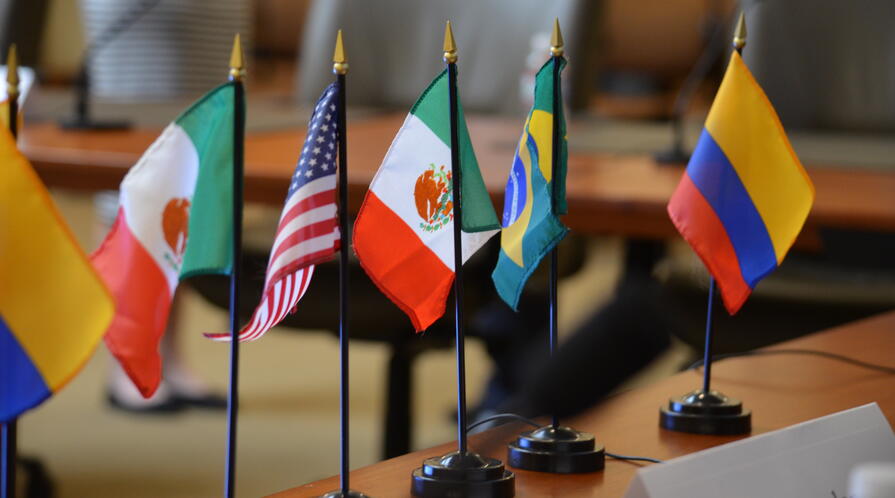Stanford conference on violence and policing in Latin America and the United States

Scholars, law enforcement officials, business leaders and community activists gathered at Stanford for a two-day conference to examine violence and policing in Latin America and the United States.
The April conference highlighted the work being implemented by law enforcement, entrepreneurs and grassroots organizations to reduce violence in major cities. Practitioners from Latin America and the U.S. shared their experiences and best practices to reduce violence. Many violence-plagued cities in the U.S. have implemented innovative initiatives to address the challenge that have included community policing tools and youth violence interventions. Similar initiatives are also taking place in Latin America with varying degrees of success.
The event was hosted by the Program on Poverty and Governance (PovGov) at the Center on Democracy, Development and the Rule of Law, and held in partnership with the Bill Lane Center for the American West, the Center for Latin American Studies, the ‘Mexico Initiative’ at the Freeman Spogli Institute for International Studies (FSI) and the Center for International Security and Cooperation, the conference
“Our conference was a success in terms of facilitating a dialogue among scholars, practitioners, grassroots organizations, police, and policy-makers whom might not otherwise interact. The conference gathered experiences about violence-reducing initiatives, innovative ways to engage the youth population at high risk and ways to enhance police accountability and police-community relationships that are taking place in major cities in the US, Mexico, Brazil and Colombia,” said Beatriz Magaloni, an associate professor of political science who directs PovGov, a program that studies the links between public action, governance and poverty.
 |
| Photo Credit: Christian Ollano |
“Our conference was part of our on-going effort to build a network of scholars, practitioners, and policy-makers dedicated to understanding and finding solutions to the ongoing problems of violence and weak rule of law in the Western hemisphere. We will follow up with a workshop in the fall convened by the World Justice Project, Carnegie Endowment for International Peace and the Program on Poverty and Governance at CDDRL in Washington DC,” said Magaloni, who is also a senior fellow at FSI.
Conference sessions were led by CDDRL faculty members and affiliates, including: FSI Director Mariano-Florentino Cuéllar; Francis Fukuyama, the Olivier Nomellini Senior Fellow; FSI senior fellow and CDDRL affiliated faculty member Alberto Díaz-Cayeros; and former President of Peru and CDDRL Visiting Lecturer Alejandro Toledo.
One of three featured keynote speakers, Sergio Fajardo, the current governor of Antioquia, Colombia, spoke about how he and his team implemented an effective strategy to reduce the level of violence in Medellin while he was mayor of the Colombian city. The two other keynotes included Mariano Beltrame, minister of security of Rio de Janeiro who is credited for the enactment and implementation of the Pacification Police Unites to reduce violence in the favelas of the city and Hector Robles, major of the municipality of Zapopan who has implemented various innovative policies to give better opportunities to the youth in Mexico, including an initiative called Jovenes con Porvenir (Youth with a Bright Future).
The conference built upon a PovGov research project that is focused on the Brazilian military police in Rio de Janeiro. Targeting an important initiative in the city's favelas, the "Pacifying Police Units", the ongoing project investigates the use of lethal force by the police and reforms aimed at controlling violence.
Conference resources, including a full report, presentations and videos, are available. To access, please use the links below.
Social Media Thread: #PovGov

 Conference Resources:
Conference Resources: